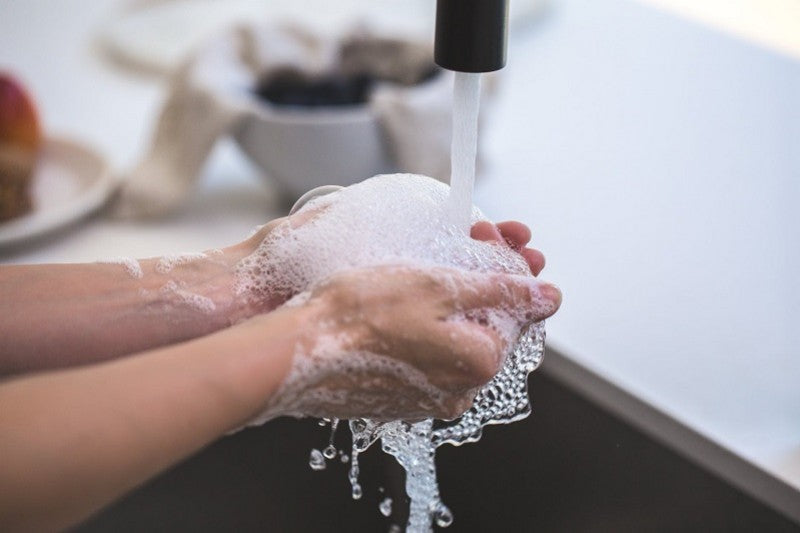
How to disinfect your home and work environments to protect yourself
Even after quarantine , maintaining high hygiene standards is essential , both in private settings and in businesses, shops, and public spaces. Although the greatest number of infections are linked to sneezing and coughing, it has been shown that the COVID-19 bacterial load remains active for several hours upon contact with certain materials and surfaces, demonstrating once again the importance of continuing to disinfect with suitable products . The World Health Organization has once again emphasized the importance of frequent handwashing, which is the best and most effective way to limit infections, but has also recommended using hand sanitizer for those who will be away from home. This advice is certainly essential for those who return to work after abandoning smart working and will have to come into contact with crowded, albeit controlled, environments such as public transportation.
Washing your hands eliminates the virus: but when you're out and about, don't forget hand sanitizer!
Experts have emphasized that handwashing is the first safety method for eliminating the coronavirus . However, it's important to do it properly, rubbing your hands together for at least 20 seconds. If soap and water aren't available, you can disinfect your hands with specific 60% alcohol-based hand sanitizers. Hand sanitizers are therefore recommended when you can't access a sink to wash your hands. They come in gel, spray, or wipe form , and the duration of protection obviously depends on the situation. To use them correctly, however, it's not enough to simply apply them; it's important to follow the same steps you would use when washing your hands, wiping the back, palm, wrist, and fingers, paying attention to the spaces between your fingers.

How to disinfect surfaces?
Research demonstrating the coronavirus's resistance to surface contamination has highlighted the importance of cleaning and disinfecting surfaces in homes, businesses, shops, and public areas.
- Soap and water: this is certainly the first way to fight the infection, as the WHO has also clearly highlighted.
- Bleach: Solutions containing bleach are also an excellent way to disinfect the virus, but remember to use a diluted solution, not a pure one, especially if there are children or pets present, as they could otherwise do more harm than good.
- Alcohol: If the alcohol solution contains more than 70% alcohol, it will be effective for treating surfaces and disinfecting them against viruses and bacteria.
Recommended antibacterial products for disinfecting hands and surfaces
The entire Climando team has never stopped working during the emergency, striving to stay close to customers, ensuring regular, completely safe deliveries. But they've gone even further, taking concrete action to sell high-quality, certified, and safe disinfectant products to protect those seeking effective antibacterial materials at the right price. Currently, on the Climando shop you can find:
- Primagel Plus disinfectant gel – available in 500 ml or 50 ml bottles, sold in multipacks. It will be an indispensable product in the coming months because it disinfects hands without rinsing, effectively fighting bacteria, viruses, and fungi.
- Zepventure Original Foaming Sanitizing Detergent – This foam disinfectant sanitizes thanks to the presence of quaternal ammonium salts. It is suitable for all types of surfaces and is also excellent for working on air conditioning systems.
- Zep Italia DK SAN concentrated disinfectant detergent bactericidal – available in both 5lt and 20lt canisters, this product is excellent for disinfecting tools and utensils but also cells, refrigerated counters and surfaces related to the food sector but also an important ally for communities and the hospital sector.
- Zep Italia Biotect AV Multipurpose Sanitizing Detergent, a broad-spectrum virucidal cleaner – in a 20-liter container, boasts proven sanitizing and disinfecting effectiveness, killing bacteria, fungi, and viruses. Ideal for cleaning and sanitizing, it is also highly versatile, adapting to surfaces, floors, tools, and utensils, even in the healthcare and food sectors.

How to use disinfectants correctly
Although the primary transmission occurs directly from person to person through saliva droplets, the coronavirus has been shown to survive on surfaces such as cardboard and steel. Therefore, disinfectants can also be helpful in protecting ourselves from Covid-19, but they are specific products and must be used correctly. Niguarda Hospital has released alarming data regarding a dramatic increase in domestic poisonings due to the improper use of these products, particularly affecting children under five. To disinfect commonly used surfaces at home and at work, such as desks, tables, doorknobs, and electronic devices, you can use alcohol-based solutions with a 70% concentration, or even certified chlorine-based products. The same applies to floors, which can be effectively disinfected with active chlorine-based products. For bathroom fixtures, you can use a specific disinfectant solution or use a 0.5% active chlorine concentration, but remember to always dilute the solution precisely as directed.

What not to use against coronavirus
This quarantine has also generated a series of fake news stories that have led to serious consequences and health problems. Homemade disinfectants and the overuse of chemicals have caused numerous health problems . Therefore, always carefully read the dosages of disinfectants and antibacterials you use to clean your home and surfaces. Avoid using them undiluted, especially if they specify dilution. Also, avoid DIY : don't follow recipes to create disinfectants or products at home. Right now, it's important to rely on safe and certified brands to ensure your safety and protection, as they're created by expert chemists.
- Choosing a selection results in a full page refresh.
!















